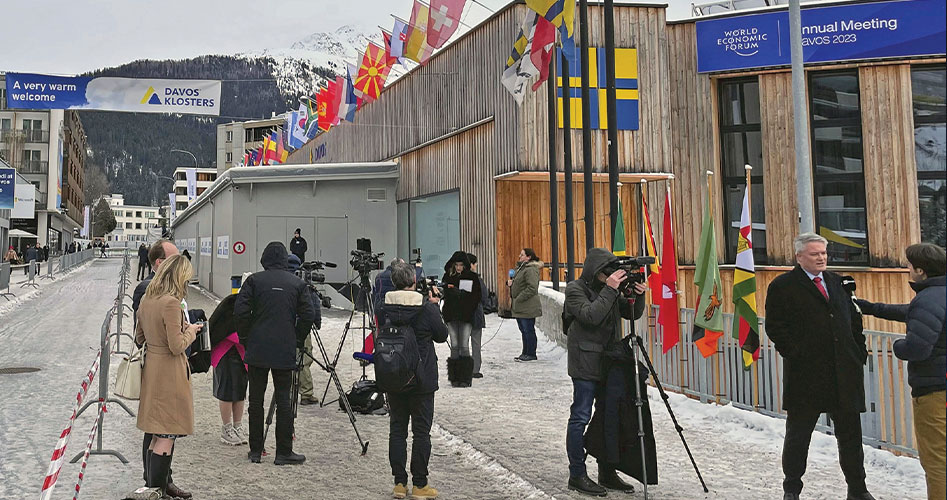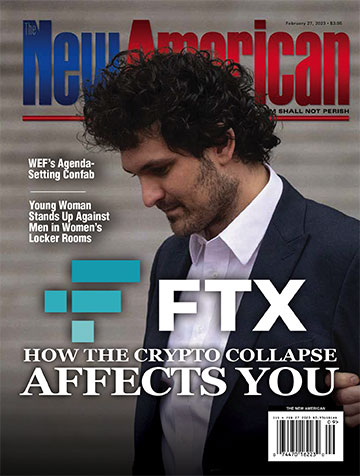
WEF’s Agenda-setting Confab
This year’s World Economic Forum, the 53rd such annual meeting, has returned to its traditional January time slot after several years of pandemic-related delays and cancellations. The WEF has traditionally met soon after the New Year in order to serve as an annual agenda-setting event, one of the most important venues for globalists to align their New Year’s resolutions for more action-oriented venues later in the year. Founded by German economist, engineer, and all-around International Man of Mystery Klaus Schwab, the WEF takes over the Alpine Swiss village of Davos for an entire week. Its guest roster always includes a generous number of political leaders, including heads of state, as well as assorted prominent economists, business leaders, and cultural icons. Hailing from all over the world and speaking dozens of different languages, Davos attendees are typically united in their support for international socialism and their intention to remake the global political and economic system.
This year, the four-day get-together — held January 16-19 — was all about the need for systemic change, as the 2023 program made clear. Invoking the fragility of a global system ravaged by the Covid pandemic and the Russia-Ukraine war, the WEF’s official program laid out five agenda items targeting comprehensive systemic change:
Addressing the Current Energy and Food Crises in the context of a New System for Energy, Climate and Nature.
Addressing the Current High Inflation, Low Growth, High Debt Economy in the context of a New System for Investment, Trade and Infrastructure.
Addressing the Current Industry Headwinds in the context of a New System for Harnessing Frontier Technologies for Private Sector Innovation and Resilience.
Addressing the Current Social Vulnerabilities in the context of a New System for Work, Skills and Care.
Addressing the Current Geopolitical Risks in the context of a New System for Dialogue and Cooperation in a Multipolar World.
Just what these “new systems” might entail is purposefully vague. But global elites profess to be spooked by many current trends that could undo the globalization of the last several decades, including the decoupling of the Chinese economy from the rest of the world, the election of anti-globalist heads of state such as Donald Trump and Brazil’s Jair Bolsonaro, and the towering levels of debt and inflation that threaten to topple the entire world financial and economic system. According to the introduction to the WEF’s 2023 program, “For the first time since the 1970s, the world is facing a precarious disequilibrium with growth and inflation moving in oppositive directions. This is occurring alongside heightened geo-economic fragmentation, financial sector vulnerabilities … and a climate crisis spiraling out of control.” And The Guardian’s Larry Elliott, in a piece highlighting the gloomy mood at Davos this year, lamented that “the golden age of globalization in the late 1990s and early 2000s is now a fast-fading memory.”
JBS Member or ShopJBS.org Customer?
Sign in with your ShopJBS.org account username and password or use that login to subscribe.

 Subscribe Now
Subscribe Now
- 24 Issues Per Year
- Digital Edition Access
- Exclusive Subscriber Content
- Audio provided for all articles
- Unlimited access to past issues
- Cancel anytime.
- Renews automatically

 Subscribe Now
Subscribe Now
- 24 Issues Per Year
- Print edition delivery (USA)
*Available Outside USA - Digital Edition Access
- Exclusive Subscriber Content
- Audio provided for all articles
- Unlimited access to past issues
- Cancel anytime.
- Renews automatically

